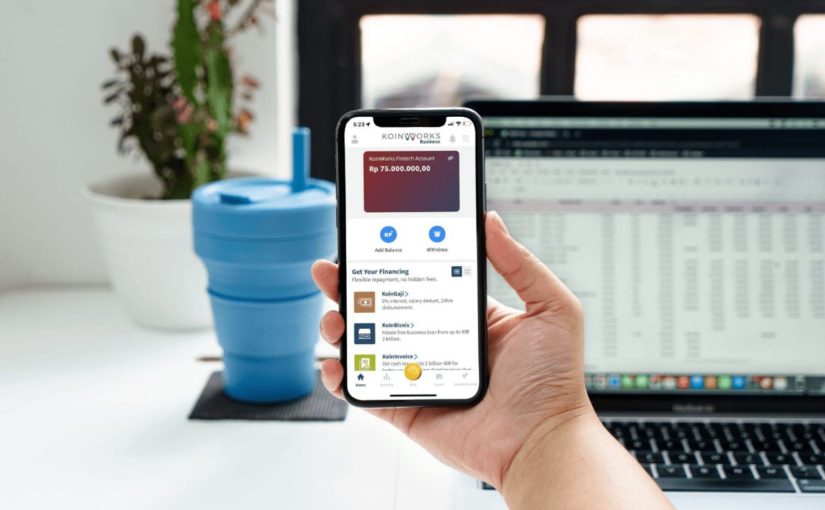Fintech startup KoinWorks and PT Bank Sahabat Sampoerna (Bank Sampoerna) officially launched KoinWorks NEO, a neobank for MSMEs. KoinWorks NEO is claimed to be the first neobank service for MSMEs in Indonesia.
In his official statement, KoinWorks’ Co-founder & CEO, Benedicto Haryono said he wanted to help MSME players with limited access to financial services through this product. He said, this situation drives the cooperation between KoinWorks and Bank Sampoerna.
MSMEs are one of the biggest economic foundations in Indonesia. Despite the continuous business growth, MSME is a segment with access to financial services, such as capital and business bank accounts.
The company said there are only two out of 100 MSMEs received loans for business capital. In addition, many MSMEs are still using personal accounts that often mixed with business affairs.
“After going through a long design process and a series of trials, we are optimistic to introduce KoinWorks NEO for all MSME’s needs in one application on KoinWorks,” he said.
Both KoinWorks and Bank Sampoerna shared one mission, to provide access to financial inclusion, MSME empowerment, and economic equity in Indonesia. This is said to be a strategic cooperation to support MSMEs in the digital banking era.
“Collaboration and digital transformation are absolutely necessary in order to provide effective and efficient services for MSMEs. We are collaborating with KoinWorks to develop a one-stop banking solution for MSMEs,” Bank Sampoerna’s Director of Finance and Business Planning, Henky Suryaputra said.
In a separate occasion, Henky revealed that this collaboration involves no investment commitment, it’s rather use each other’s capabilities in terms of technology. He also said, the KoinWorks NEO development was mainly carried out by KoinWorks in coordination with Bank Sampoerna.
On a general note, KoinWorks was founded in 2016 as a p2p lending startup focusing on MSMEs. To date, the company has advanced into a Super Financial App that offers various other financial services, such as investment and funding. As of October 2021, KoinWorks is recorded to have 1.139 million users with a total AUM of Rp1.193 trillion.
Digital bank and neobank
Regarding neobank, this term is often identified as a digital bank in Indonesia. It is quite reasonable considering the rapid growth of financial services and digital banks in recent years. DailySocial.id published a separate article on the digital bank trend. We are trying to map it based on its definition, considering digital banks and neobanks are relatively new in Indonesia.
Based on the definition by FinTech Magazine, neobank offers flexibility to various services, including payroll and expense management. In addition, neobank also offers corporate financial solutions to address MSME’s challenges. Nubank is an example of a successful Brazilian neobank, even the largest in Latin America with 38 million users.
API helps to integrate business flows with banking requirements. However, neobanks do not have a banking license as they operate by relying on partner banks. Hence, they cannot offer traditional banking services.
Meanwhile, digital banks in the direct bank category supposed to enlarge opportunities for banking services, such as savings and digital loan channeling. This kind of model has been widely adopted by Indonesian banking industry. Most Indonesia’s digital bank players currently performs the mini bank acquisition model, transforms it with a new identity, and collaborates synergistically with digital platforms to help accelerate its services, for example Bank Jago with Gojek and Bank Neo Commerce and Akulaku.
Previously, the chairman of the Indonesian Fintech Society (IFSoc), Mirza Adityaswara said that the rise of neobanks brought various benefits as well as new risks. Neobank has innovative and customer-centric features, such as AI and machine learning, that can help users access services and manage personal finances.
On the other hand, neobanks are also at great risk of cybersecurity attacks. For example, the risk of leakage of customer personal data to systemic failure caused by the interdependence of digital infrastructure for various financial services.
–
Original article is in Indonesian, translated by Kristin Siagian
